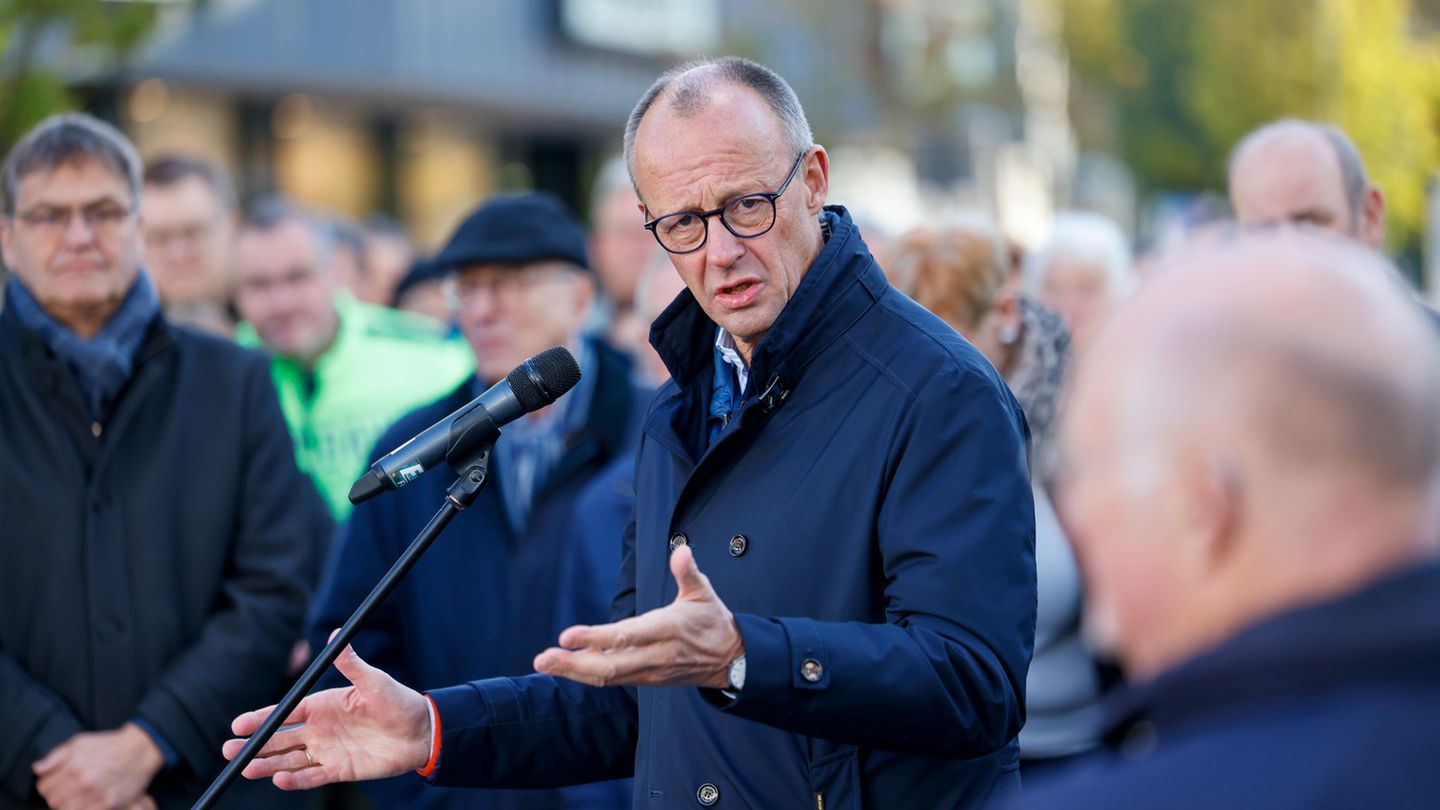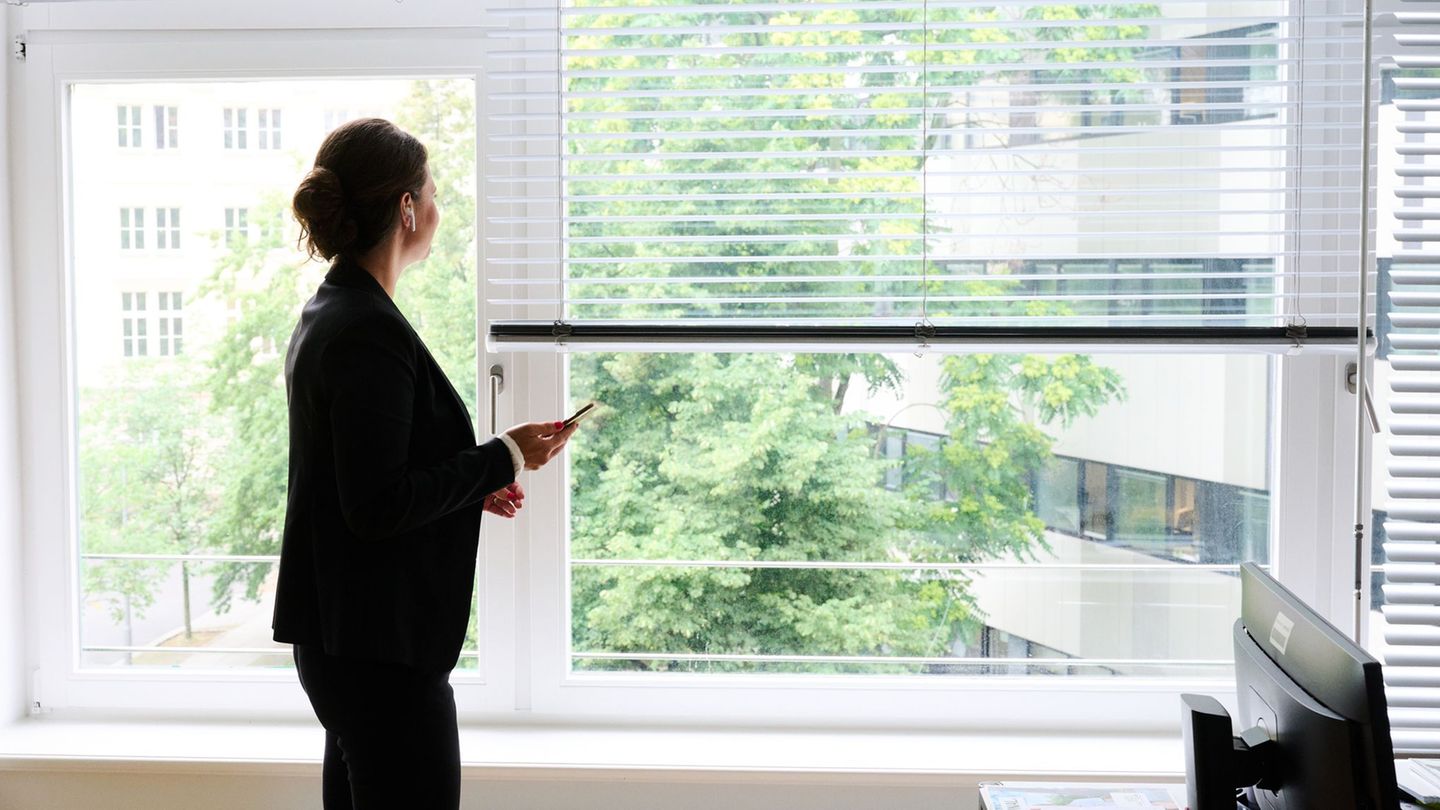It has been two months since Chancellor Scholz proposed a Germany pact to modernize the country. A top meeting will show whether the idea has a chance.
It is the most important federal-state summit in a long time: Today, Chancellor Olaf Scholz (SPD) is meeting with the heads of government of the 16 federal states to discuss, above all, the costs of accommodation and care for refugees and the containment of irregular migration.
It is also about reducing excessive bureaucracy in order to speed up planning processes and approval procedures. And last but not least, the future of the German rail ticket is at stake.
The negotiations could drag on into the night – especially because a lot of money is involved. In the end we will see whether the federal and state governments are able to pull together to make progress together on key domestic policy issues and to counteract a division in society. That was Chancellor Scholz’s idea when he proposed a Germany pact to modernize the country at the beginning of September.
The top meeting at 3 p.m. in the Chancellery is now the acid test for this. “The shift to the right is in full swing. Ultimately, Monday will have a significant impact on Germany’s political future,” warns Saxony-Anhalt’s Prime Minister Reiner Haseloff (CDU).
Less migration: cost distribution and curbing immigration
The focus will clearly be on the issue of migration. The first issue is who should pay for the drastically increased costs of accepting refugees. According to the states, the federal government wants to reduce its share from 3.75 to 1.25 billion euros. They don’t want to accept that. In a resolution in mid-October, they demanded a flat rate of 1.25 billion euros and at least 10,500 euros per migrant. The fronts have hardened. If the negotiations go into the night, then it is because of this item on the agenda.
In addition, it is also about ensuring that the influx of refugees is curbed. There are some ideas on which agreement should be much easier. The aim is to significantly simplify the procedures for asylum seekers from countries with low recognition rates. If the rate is below five percent, the procedures should only take three months. It will also involve, among other things, switching from cash payments to benefits in kind for asylum seekers.
Other suggestions should, if at all, be discussed more in perspective. For example, that of North Rhine-Westphalia’s Prime Minister Hendrik Wüst (CDU) to carry out asylum procedures in third countries along escape routes – for example in Africa. However, countries that are willing to do this would first have to be found.
More speed: faster planning and approval processes
When the CDU and CSU hear the German Pact, they think about curbing migration. For Chancellor Scholz, on the other hand, the original aim was to speed up the planning and approval processes so that Germany remains competitive. This is the second major topic at the summit.
It’s about how wind turbines, power lines, railway lines and housing can be built more quickly. More renewable energies should also lead to cheaper electricity prices. The federal and state governments have been working out the details at working level for months, but the prime ministers still have to give the green light.
In order to build more housing, for example, the building regulations of the states should be standardized. If a house has been approved in one country, less extensive procedures should apply to identical buildings elsewhere. Converting an attic into an apartment should be possible without permission under certain conditions. The construction of cell phone towers should work uniformly and more often without permission.
When expanding rail, power grids and roads, uniform species protection standards should be set by law in order to enable faster procedures. Environmental groups such as Nabu fear that many of the plans will come at the expense of nature. Environmental impact assessments should be eliminated, there should be more exceptions to species protection and the possibility of objections should also be reduced.
Deutschlandticket: Will traveling by train become more expensive again?
It’s all about money again with the Deutschlandticket for nationwide local transport. The states are demanding that the federal government cover half of any additional costs in 2024. This was only agreed for the introductory year of 2023. This concerns any loss of income that exceeds three billion euros.
The federal and state governments are already contributing half of this sum in order to keep the offer economical for transport companies. The federal government has already dampened expectations of new commitments and points to the tense budget situation – and that it will only be possible to quantify what additional costs there will actually be at the end of 2024. A basic option would also be to increase the “introductory price” of 49 euros per month. Consumer advocates have already warned about this.
Source: Stern
I have been working in the news industry for over 6 years, first as a reporter and now as an editor. I have covered politics extensively, and my work has appeared in major newspapers and online news outlets around the world. In addition to my writing, I also contribute regularly to 24 Hours World.




